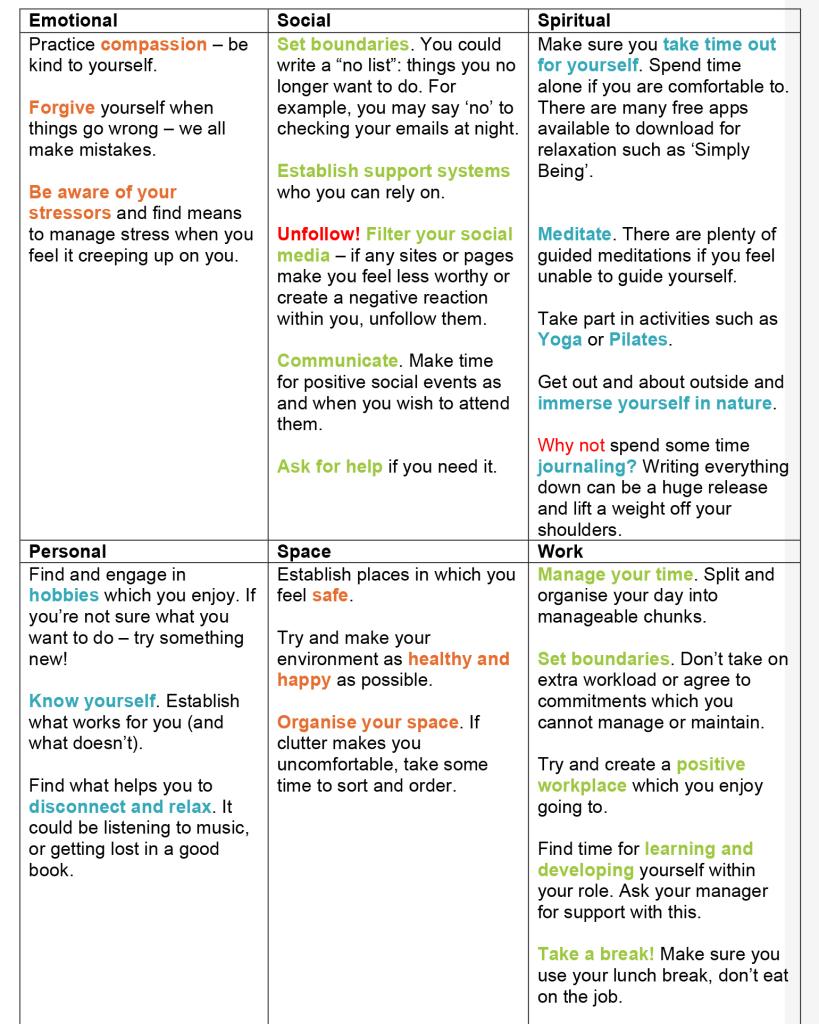The Importance of Self-Care

Self-care can be defined as any activity that we engage in to take care of our emotional, psychological and physical health. Taking care of our whole self is incredibly important. Day-to-day life can be busy, and sometimes stressful. It can be easy to neglect ourselves and not always put our needs and wishes first.
Self-care is particularly relevant and important in our sector. Our staff have demanding jobs and if they do not care for themselves, they will struggle to support the children and young people who need them.
As a social enterprise we’re invested in supporting our staff’s wellbeing; we aim for them to have manageable caseloads and flexible working arrangements to recognise the demands and flux in their work. We encourage staff to engage in local health and wellbeing activities. We have specialist support in place, such as our confidential counselling service, if staff need enhanced support. We know we need to do more and this year we’re looking at implementing new initiatives, like mental health first aid training.
We are also committed to supporting our foster carers and recognising the valuable work they do. We have support groups, formal and informal networks and we run away days to celebrate, share and learn to support our carers.
Self-care means different things to different people, and it is important you find what genuinely helps you, opposed to what you think will help you. For example, some people like to take a long walk to relax – but this doesn’t necessarily appeal to everyone. However you care for yourself, your self-care routine should be realistic and achievable.
Basic principles of self-care
- Get enough sleep. 7-9 hours per night are recommended for adults (age 18 and upwards)
- Eat a nutritious, healthy diet. The NHS recommends men should consume around 2,500 calories a day, and women should aim for 2,000 calories. We should be aiming to consume high fibre, at least five portions of fruit and veg and be aiming to reduce our consumption of saturated fats, sugar and salt.
- This doesn’t have to be a gruelling high intensity workout; you can find a form of exercise which you enjoy!
- Keep hydrated. Our bodies are roughly 60% water, which needs replenishing throughout the day. It is recommended we consume around 2 litres of water per day.
Once you’ve covered the basics, you can start exploring what else works for you. Personal preferences can be established for how best to recuperate, rest and relax. If you wish, you can compartmentalise self-care into areas which make it easier to apply and incorporate into your daily routine.
Here are some helpful ideas to ensure your needs are met:

Written by Katharine Anderson
